
Giza Pyramids
Egypt is a country mainly in North Africa, with the Sinai Peninsula forming a land bridge in Southwest Asia. Egypt is thus a transcontinental country, and a major power in Africa, the Mediterranean Basin, the Middle East and the Muslim world. Covering an area of about 1,010,000 square kilometers (390,000 sq mi), Egypt is bordered by the Mediterranean Sea to the north, the Gaza Strip and Israel to the northeast, the Red Sea to the east, Sudan to the south and Libya to the west.

The Great Sphinx and the Pyramids of Giza, built during the Old Kingdom, are modern national icons that are at the heart of Egypt's thriving tourism industry
Egypt is one of the most populous countries in Africa and the Middle East. The great majority of its estimated 80 million people[4] live near the banks of the Nile River, in an area of about 40,000 square kilometers (15,000 sq mi), where the only arable land is found. The large areas of the Sahara Desert are sparsely inhabited. About half of Egypt's residents live in urban areas, with most spread across the densely populated centres of greater Cairo, Alexandria and other major cities in the Nile Delta.
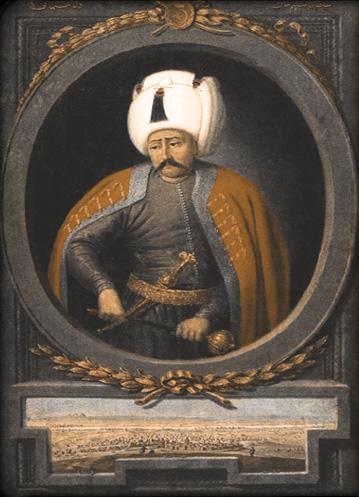
Selim I (1470–1520), Egypt conquered
Monuments in Egypt such as the Giza pyramid complex and its Great Sphinx were constructed by its ancient civilization. Its ancient ruins, such as those of Memphis, Thebes, and Karnak and the Valley of the Kings outside Luxor, are a significant focus of archaeological study. The tourism industry and the Red Sea Riviera employ about 12% of Egypt's workforce.
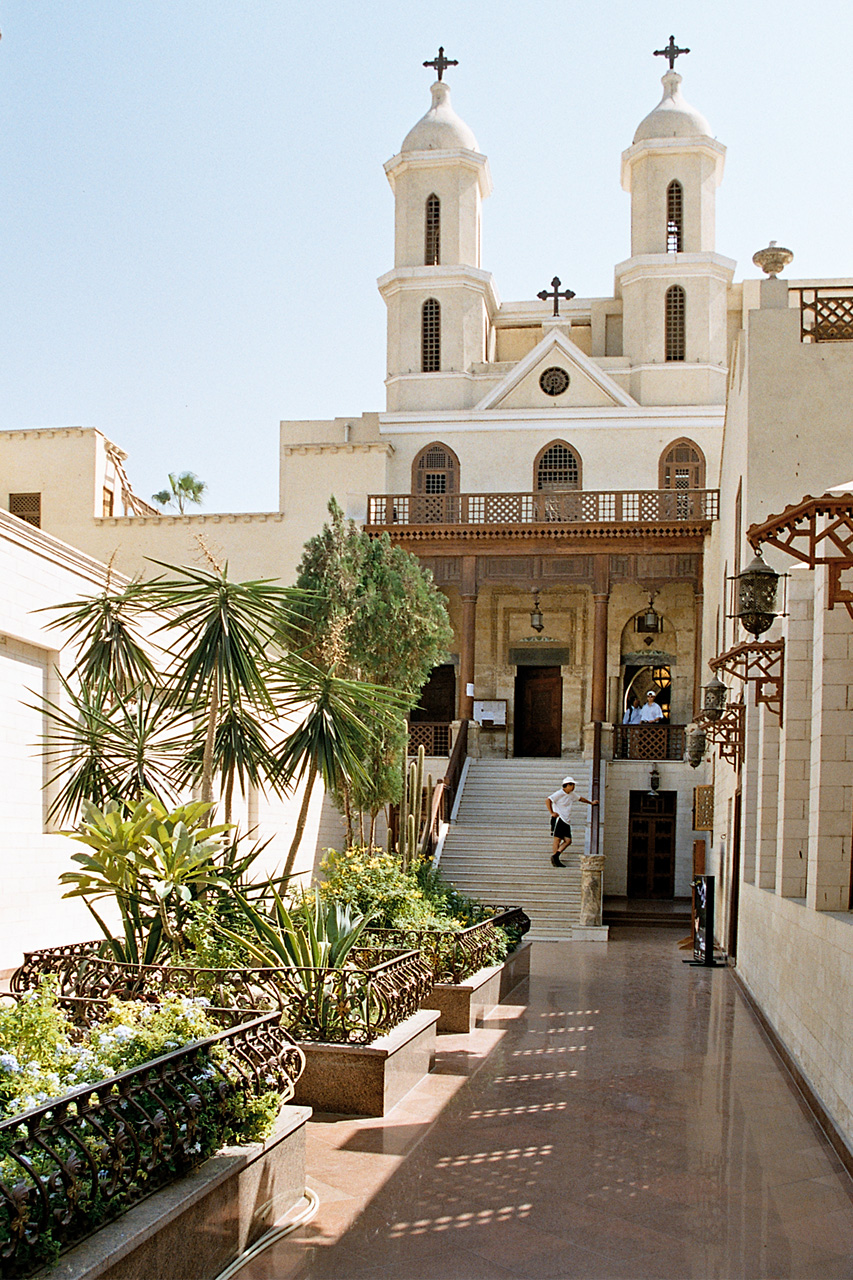
The Hanging Church of Cairo, first built in the third or fourth century AD, is one of the most famous Coptic Churches in Egypt
The economy of Egypt is one of the most diversified in the Middle East, with sectors such as tourism, agriculture, industry and service at almost equal production levels.
In early 2011, Egypt underwent a revolution, which resulted in the ousting of President Hosni Mubarak after nearly 30 years in power.

Mosque of Muhammad Ali
Climate
Most of Egypt's rain falls in the winter months. South of Cairo, rainfall averages only around 2 to 5 mm (0.1 to 0.2 in) per year and at intervals of many years. On a very thin strip of the northern coast the rainfall can be as high as 410 mm (16.1 in), mostly between October and March. Snow falls on Sinai's mountains and some of the north coastal cities such as Damietta, Baltim, Sidi Barrany, etc. and rarely in Alexandria. Frost is also known in mid-Sinai and mid-Egypt.

Celebrations in Tahrir Square after Omar Suleiman's statement announcing Hosni Mubarak's resignation
Temperatures average between 80 °F (27 °C) and 90 °F (32 °C) in summer, and up to 109 °F (43 °C) on the Red Sea coast. Winter temperatures average between 55 °F (13 °C) and 70 °F (21 °C). A steady wind from the northwest helps lower temperatures near the Mediterranean coast. The Khamaseen is a wind that blows from the south in spring, bringing sand and dust, and sometimes raises the temperature in the desert to more than 100 °F (38 °C).
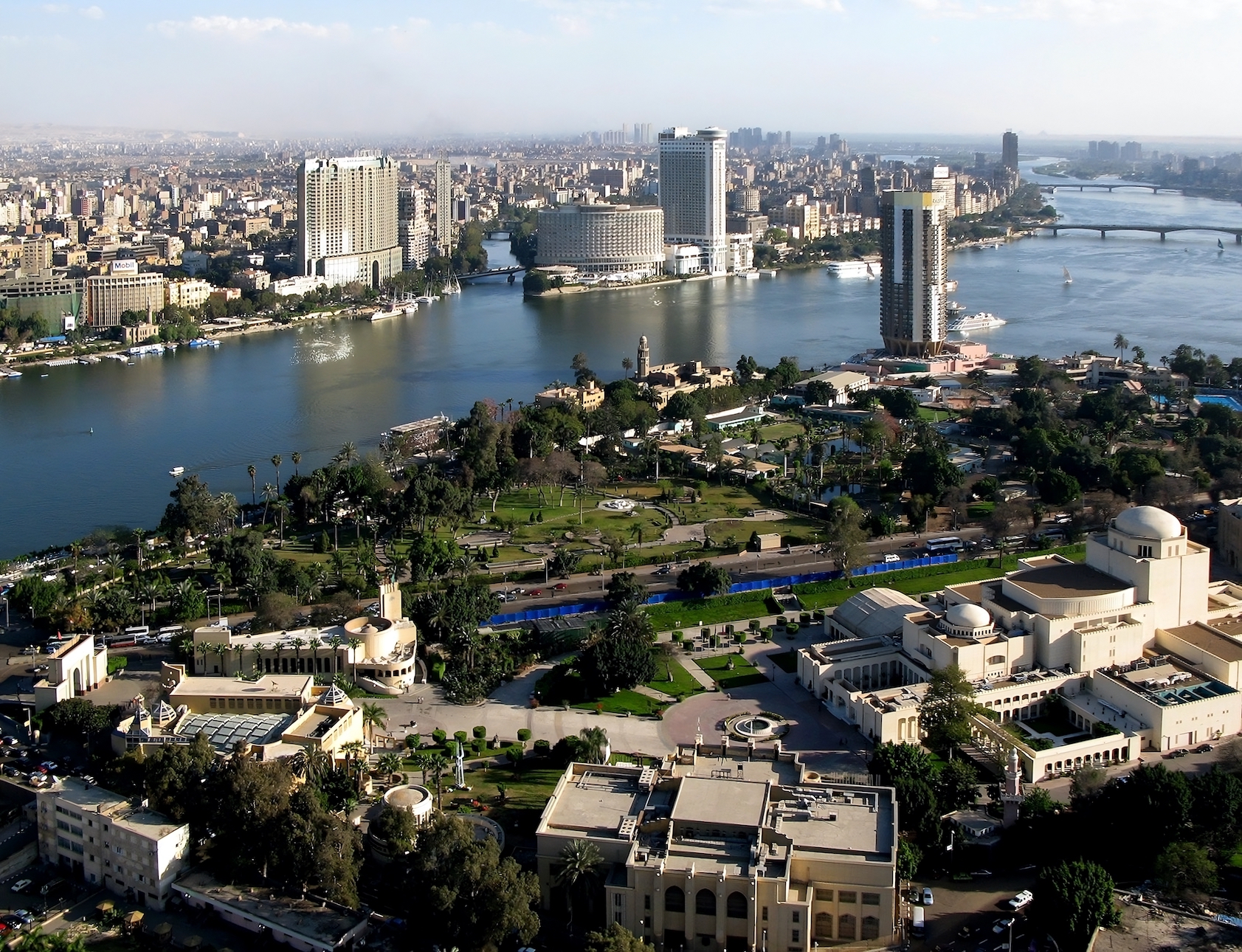
The Nile at Cairo
Prior to the construction of the Aswan Dam, the Nile flooded annually (colloquially The Gift of the Nile) replenishing Egypt's soil. This gave the country consistent harvest throughout the years.
The potential rise in sea levels due to global warming could threaten Egypt's densely populated coastal strip and have grave consequences for the country's economy, agriculture and industry. Combined with growing demographic pressures, a significant rise in sea levels could turn millions of Egyptians into environmental refugees by the end of the century, according to some climate experts.

The coastline of Alexandria, Egypt's second largest city
Human rights
Several local and international human rights organizations, including Amnesty International and Human Rights Watch, have for many years criticized Egypt's human rights record as poor. In 2005, President Hosni Mubarak faced unprecedented public criticism when he clamped down on democracy activists challenging his rule. Some of the most serious human rights violations, according to HRW's 2006 report on Egypt, are routine torture, arbitrary detentions and trials before military and state security courts.
A street in Naama Bay, Sharm el-Sheikh
Egypt has also been cited for discriminatory personal status laws governing marriage, custody and inheritance, which critics say put women at a disadvantage. Laws concerning Coptic Christians which place restrictions on church building and open worship have been recently eased, but major construction still requires Government approval, while sporadic attacks on Christians and churches continue.Intolerance of Bahá'ís and unorthodox Muslim sects, such as Sufis and Shi'a, also remains a problem.

The Nile at Cairo
The Egyptian legal system only recognizes three religions: Islam, Christianity and Judaism. When the Government moved to computerize identification cards, members of religious minorities, such as Bahá'ís, could not obtain identification documents. An Egyptian court ruled in early 2008 that members of other faiths can obtain identity cards without listing their faiths, and without becoming officially recognized. (For more on the status of religious minorities, see the Religion section.)

The Nile River near Aswan
In 2005, the Freedom House rated political rights in Egypt at "6" (with 1 representing the most free and 7 the least), civil liberties as "5" and gave it the freedom rating of "Not Free." It however noted that "Egypt witnessed its most transparent and competitive presidential and legislative elections in more than half a century and an increasingly unbridled public debate on the country's political future in 2005."[76] For freedom of the press, Egypt was deemed "Partly Free" in 2008, ranking 124 out of the 196 countries surveyed.
Suez Canal Bridge
In 2007, Amnesty International released a report criticizing Egypt for torture and illegal detention. The report alleges that Egypt has become an international center for torture, where other nations send suspects for interrogation, often as part of the War on Terror. The report calls on Egypt to bring its anti-terrorism laws into accordance with international human rights statutes and on other nations to stop sending their detainees to Egypt. Egypt's foreign ministry quickly issued a rebuttal to this report, claiming that it was inaccurate and unfair, as well as causing deep offense.
Tourists ride in a traditional Nile boat
The Egyptian Organization for Human Rights (EOHR) is one of the longest-standing bodies for the defence of human rights in Egypt.[80] In 2003, the Government established the National Council for Human Rights, headquartered in Cairo and headed by former UN Secretary-General Boutros Boutros-Ghali who directly reports to the President. The council has come under heavy criticism by local activists, who contend it undermines human rights work in Egypt by serving as a propaganda tool for the Government to excuse its violations and to give legitimacy to repressive laws such as the recently renewed Emergency Law. Egypt had announced in 2006 that it was in the process of abolishing the Emergency Law, but in March 2007, Mubarak approved several constitutional amendments to include "an anti-terrorism clause that appears to enshrine sweeping police powers of arrest and surveillance", suggesting that the Emergency Law will remain for the long haul.
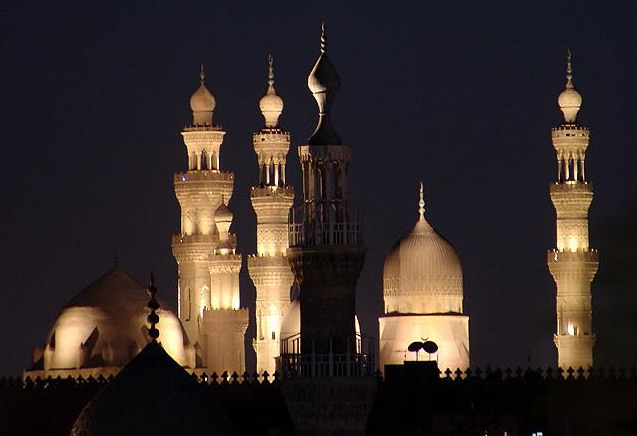
Cairo's unique cityscape with its ancient mosques. Cairo is known as the "city of a thousand minarets"
According to the World Health Organization in 2008, an estimated 91.1% of Egypt's girls and women have suffered genital mutilation.

Millions of Egyptians follow the Christian faith as members of the Coptic Orthodox Church of Alexandria
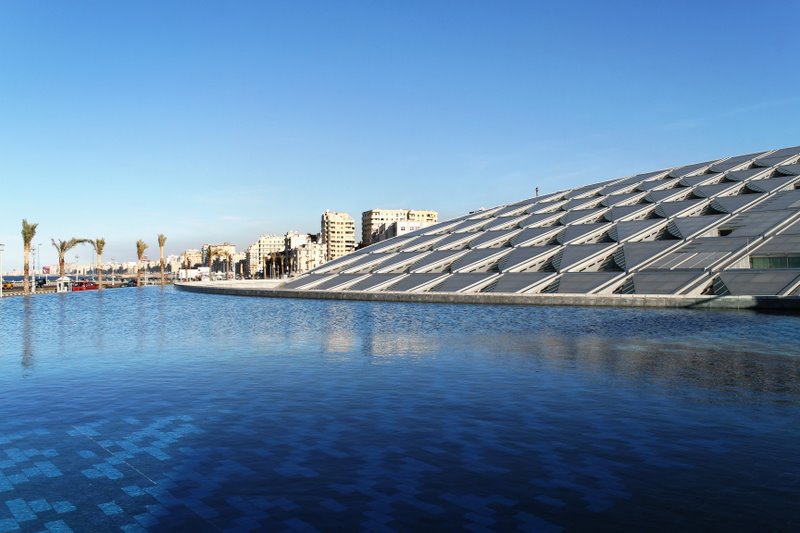
Bibliotheca Alexandrina is a commemoration of the ancient Library of Alexandria in Egypt's second largest city

Mahmoud Mokhtar's Egypt's Renaissance 1919–1928, Cairo University

Eighteenth dynasty painting from the tomb of Theban governor Ramose in Deir el-Madinah
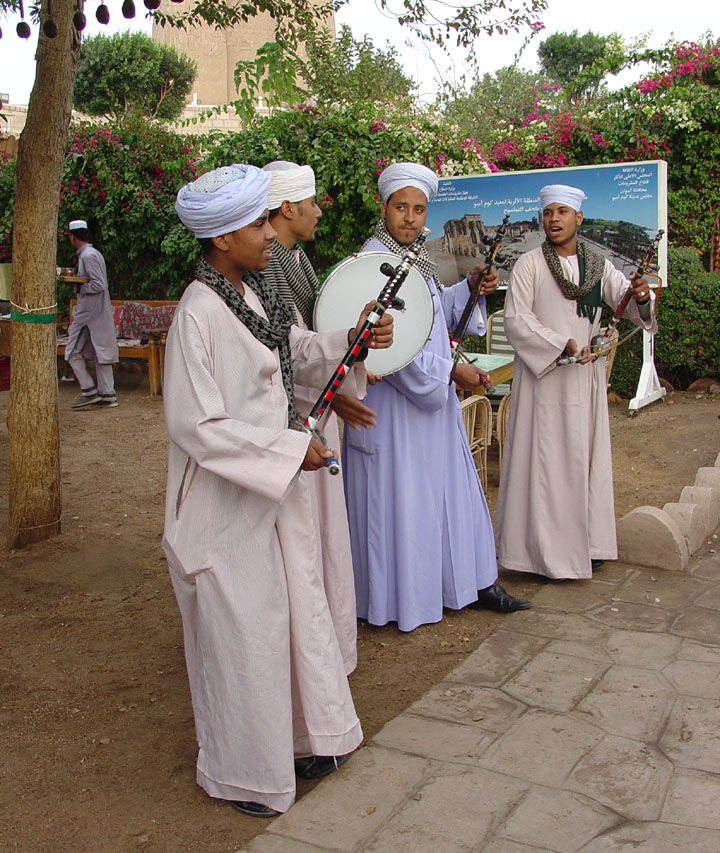
Upper Egyptian folk musicians from Kom Ombo
 09:22
09:22
 homesweethome
homesweethome

 Posted in:
Posted in: 








0 意見:
Post a Comment